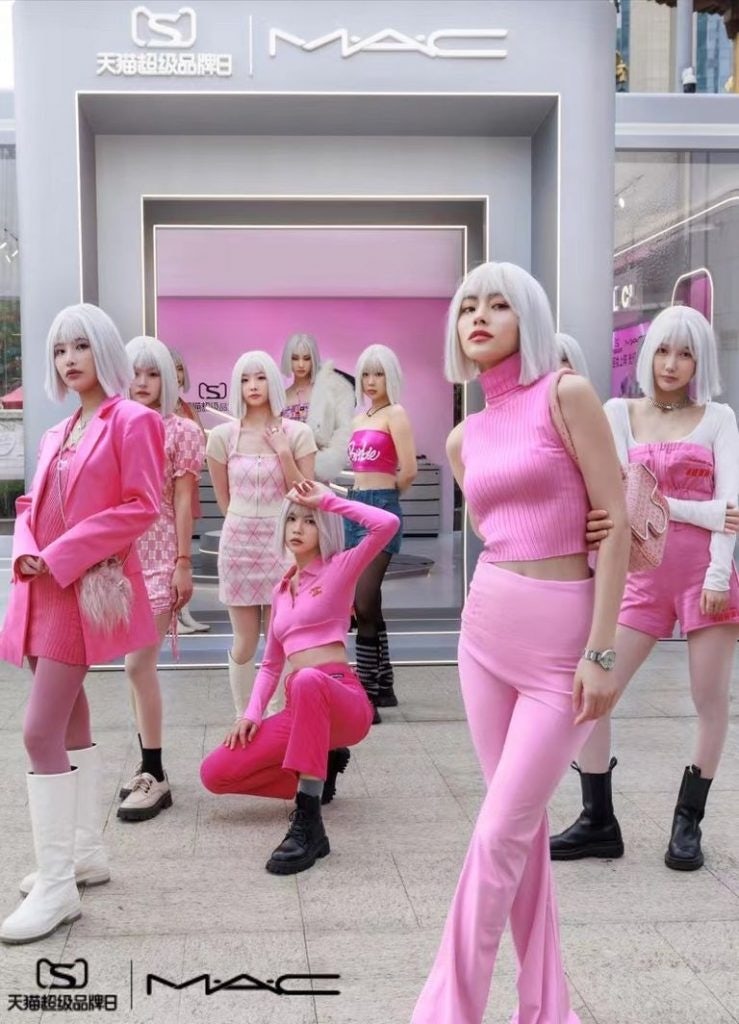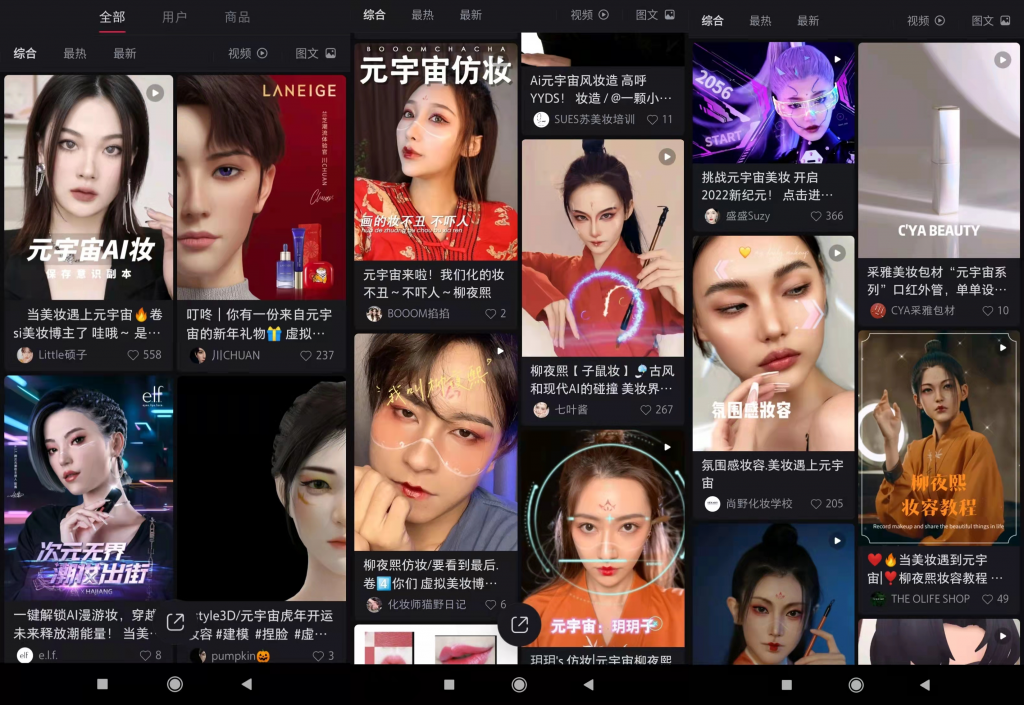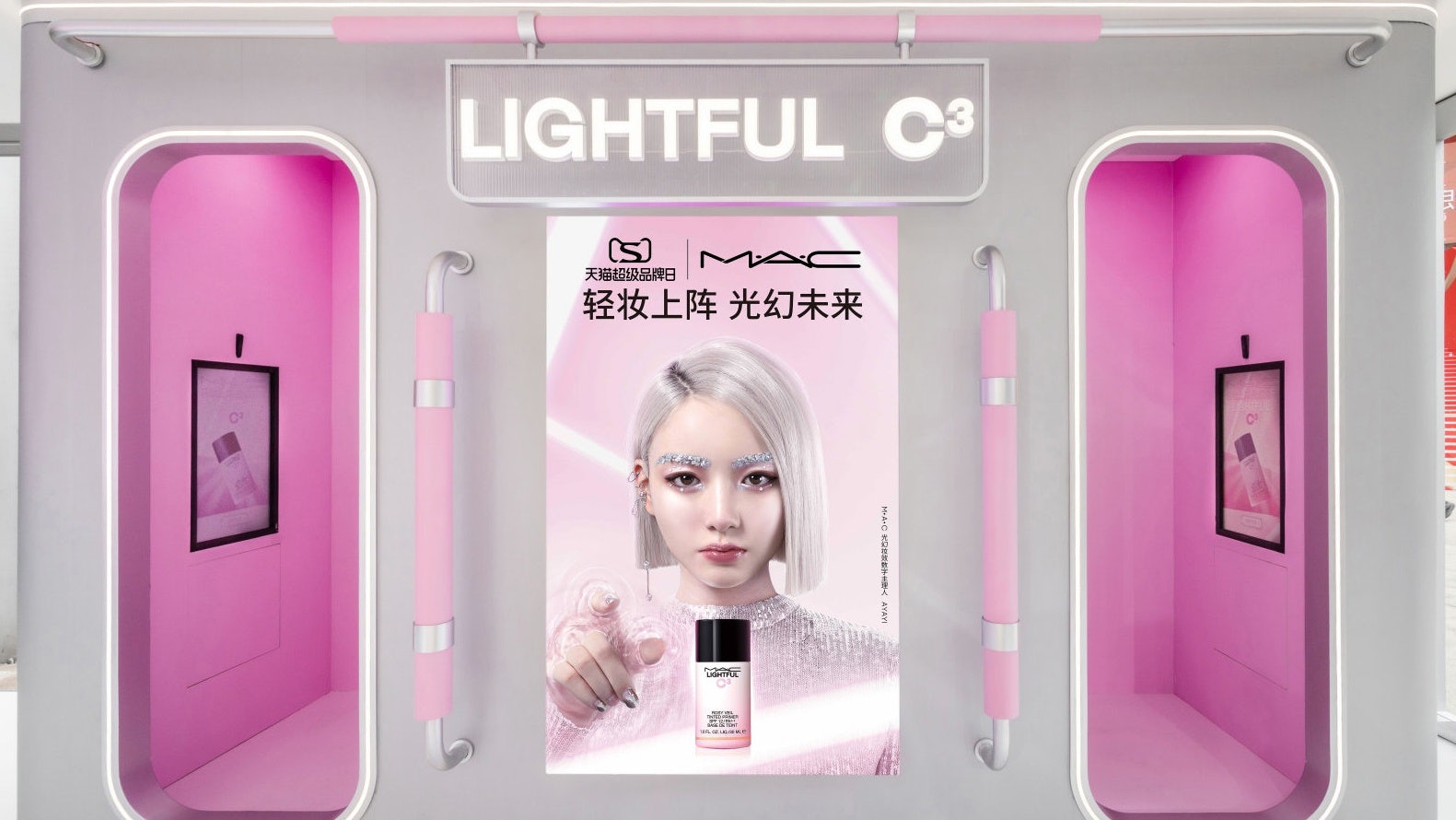As fashion and beauty wake up to Web3 and the metaverse, innovative ways of engaging consumers in the imminent digital future have become a top business priority. Decentraland’s Metaverse Fashion Week, for example, has just come to an end, while Gucci Beauty and NARS recently joined a growing cohort of brands launching metaverse initiatives for a more “immersive” customer experience.
As the world’s second-biggest beauty industry with a growing consumer base of digital natives, the mainland is crucial to beauty’s success in this new frontier. Since last year, international brands have actively collaborated with virtual influencers: L’Oréal appointed @Ayayi as its brand ambassador, while the premium K-beauty label Laneige named China’s first virtual male icon @Chuan as its spokesperson. In February this year, e.l.f. tapped virtual idol @HaJiang as the main face of its AI-beauty campaigns. M.A.C., the Estée-Lauder-owned brand, launched its product line “Lightful C3” through an ambassador deal with @Ayayi, a metaverse-themed beauty pop-up in Shanghai, and a branded social media hashtag #MetaverseGlow.

These brands’ choice of putting metaverse concepts center stage is an acknowledgment of the direction in which homegrown beauty culture has traveled. On the lifestyle platform Xiaohongshu, there are over 1,200 posts of “Metaverse Makeup” that share do-it-yourself tips on how to resemble your glossy, flawless digital avatar.
Gen Zers’ enthusiasm for the meta-inspired look can be traced back to October 2021, when Liu Yexi — a virtual influencer — debuted on Douyin (China’s TikTok) and, by the next month, had accumulated 8.7 million followers. Sporting traditional Chinese dress and superhuman abilities, the digital heroine became the archetype of metaverse-inspired beauty that the country’s Gen Zers have embraced.
On social media, #AIGoddess and #MetaMakeup soon emerged as rising beauty trends. Often paired with a glittering, shiny color palette and techno soundtrack, these meta-girl makeup video clips formed a grassroots aesthetic that has now entered the mainstream. For most domestic Gen Zers, this technological, avant-garde vision of beauty is the latest symbol of cool.

Beyond beauty, the mainland is a particularly fertile ground for the metaverse business in general. In a note to investors, Morgan Stanley estimated China’s metaverse industry to be worth 8 trillion in the future. The influx of local, metaverse-themed businesses offers a sense of scale. By February 2022, more than 16,000 metaverse-related trademark applications had been filed to the Chinese Patent Office, including those from tech giants Tencent and Alibaba who have poured investment into key metaverse infrastructure.
Critical to the metaverse’s appeal is consumers’ familiarity with the concept of blending virtual- and real-life identities. Back in the early 2000s, QQ Show — a virtual avatar fashion marketplace from Tencent’s first messaging platform — was already popular among teenage millennials.
For the past decade, China’s youth has been socializing in a metaverse-style web environment: they hang out on virtual avatar social apps like Jelly and Zepeto, watch virtual live streamers on e-commerce platform Taobao Life, and connect with strangers on the virtual dating app Soul. So for this generation of consumers, the blurring of boundaries between the digital and the physical is not a new idea. Extending beauty into the metaverse is simply a natural evolution of this long-term trend.
There is, however, a flip side to brands’ metaverse ventures in China. Unlike the West, cryptocurrencies are banned here and NFTs can only be collected, not traded. The proscription of all crypto activities will likely propel brands to leverage the metaverse as a marketing and communication tool instead of a revenue-driven digital commerce platform. Evolving regulations on the new-tech sector also mean that brands should be cautious about every move. Instead of copying and pasting what they do in the West, they need to closely monitor the latest policy updates and adapt to the mainland’s unique metaverse ecosystem.
So far, beauty brands have concentrated their efforts on working with virtual influencers or tapping into the trending meta-inspired aesthetic. The next step will be creating immersive experiences and dialogues. “Just like augmented reality and artificial intelligence, virtual beauty trials and experiential technologies have become essential to driving customer engagement. Interactive AR experiences are also important for beauty brands in the metaverse,” said Alice Chang, founder of Perfect Corp, a beauty tech company.
China’s vast young customer base and collective optimism for a digital future is an exciting opportunity for beauty’s metaverse ambitions. As Gen Zers increasingly feel more embodied in the digital realm, they will demand their metaverse selves to be as expressive, creative, and curated as they are in the real world. Yet the country’s tech culture exceptionalism also presents a unique challenge. To stay on top of the game, brands must remain alert to Beijing’s ever-changing position on the metaverse and prepare to integrate “Chinese characteristics” into their global strategy.

